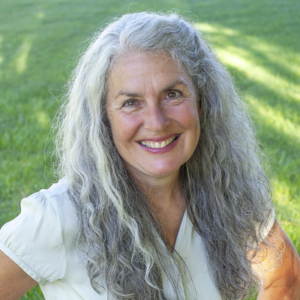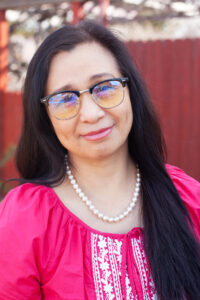Who is Deshun Wang?
Deshun (sometimes spelled Dushun) Wang is an 80 year old Chinese actor. You can listen to his short bio on YouTube here. (disregard the Arabic, it was the only video I could find to embed here.)
You can follow along with the transcript below.
Using the video to practice listening to Chinese
While there is English captioned underneath, I, of course, saw it as an opportunity to practice my Chinese listening skills and enhance my vocabulary. My tutor reviewed it with me a while ago.
This time, I listened to it while attempting to type what I could understand. It was a good exercise, but I did need my tutor to fill in a bit over half of the vocabulary. As I said, the end result is shown below.
Learning some specific vocabulary first
But before I get into the full transcript, I am going to list some of the specific vocabulary. Some of it is related to the subject of acting/modeling. Some of it has a broader conversational potential.
一 場
ˋ ㄔㄤˇ
(yì chǎng)
here it is a measure word for an event or show or time when a movie shows, but it can also mean a large place used for a specific purpose, a stage
T台
“T”ㄊㄞˊ
“T” tái
This probably means “catwalk” in this context (in Taiwan it means “TV station”)
走秀
ㄗㄡˇ ㄒㄧㄡˋ
(zǒu xiù)
to walk + flowering/refined, elegant, graceful = to walk the runway
最帥
ㄗㄨㄟˋ ㄕㄨㄞˋ
(zuì shuài)
most handsome
足足地
ㄗㄨˊ ㄗㄨˊ ㄉㄜ˙
(zú zú)(de.)
fully, no less than, as much as
當
ㄉㄤ
(dāng)
at, undertake
話劇
ㄏㄨㄚˋ ㄐㄩˋ
(huà jù)
modern drama, stage play
演員
ㄧㄢˇ ㄩㄒㄡㄢˊ
(yǎn yuán)
perform + member/personnel = actor/actress
創造
ㄔㄨㄤˋ ㄗㄠˋ
(chuàng zào)
to create/knife cut + construct, build, prepare = to create, to produce
造型
ㄗㄠˋ ㄒㄧㄥˊ
(zào xíng)
to pose, modeling
啞劇
ㄧㄚˇ ㄐㄩˋ
(yǎ jù)
to mime, dumb show
一名,一個 ,一位
ㄧˋ ㄇㄧㄥˊ, ㄧˋ ㄍㄜ˙, ㄧˊ ㄨㄟˋ
(yì míng), (yì ge.), (yí wèi)
all measure words for a person
一切
ㄧˊ ㄑㄧㄟˋ
(yí qiè)
everything, all
從頭
ㄘㄨㄥˊ ㄊㄡˊ
(cóng tóu)
anew, from the start
健身
ㄐㄧㄢˋ ㄕㄣ
(jiàn shēn)
to exercise, to keep fit, to work out
健身房
ㄐㄧㄢˋ ㄕㄣ ㄈㄤˊ
(jiàn shēn fáng)
gym
舞台
ㄨˇ ㄊㄞˊ
(wǔ tái)
posture/prance, using choreography and presenting + stage/platform = stage arena, limelight
世界
ㄕˋ ㄐㄧㄝˋ
(shì jiè)
world
唯一
ㄨㄟˊ ㄧ
(wéi yī)
only, sole
藝術
ㄧˋ ㄕㄨˋ
(yì shù)
art
形式
ㄒㄧㄥˊ ㄕˋ
(xíng shì)
outer appearance/form/shape
雕塑
ㄉㄧㄠ ㄙㄨˋ
(diāo sù)
a statue, sculpture, to carve
再次
ㄗㄞˋ ㄘˋ
(zài cì)
one more time
有意識地
一ㄡˇ ㄧˋ ㄕˊ ㄉㄜ˙
(yǒu yì shí de.)
consciously
練腹肌
ㄌㄧㄢˋ ㄈㄨˋ ㄐㄧ
(liàn)(fù jī)
train abdominal muscle
追求
ㄓㄨㄟ ㄑㄧㄡˊ
(zhuī qiú)
to pursue [a goal etc] stubbornly, to seek after
相信
ㄒㄧㄤ ㄒㄧㄣˋ
(xiāng xìn)
to believe
潛能
ㄑㄧㄢˊ ㄋㄥˊ
(qián néng)
hidden possible, potential, hidden capability
發掘
ㄈㄚ ㄐㄩㄝˊ
(fā jué)
to excavate, to explore, to unearth, to tap into
謹慎
ㄐㄧㄣˇ ㄕㄣˋ
(jǐn shèn)
prudent, cautious
退怯
ㄊㄨㄟ + ㄑㄧㄝˋ
(tuì) + (qiè)
to retreat, to decline, to withdraw + timid, cowardly, rustic
藉口
ㄐㄧㄝˋ ㄎㄡˇ
(jiè kǒu)
rely on, pretext + mouth, entrance = to use as an excuse, on the pretext
阻止
ㄗㄨˇ ㄓˇ
(zǔ zhǐ)
to prevent, to block
成功
ㄔㄥˊ ㄍㄨㄥ
(chéng gōng)
success, to succeed
除 了
ㄔㄨˊ ㄌㄜ˙
(chú le.)
except
該
ㄍㄞ
(gāi)
should, must
應該
ㄧㄥ ㄐㄍㄞ
(yīng gāi)
should, must
炫
ㄒㄩㄢˋ
(xuàn)
to dazzle, to boast, to show off, to flaunt (bright and dazzling)
千萬
ㄑㄧㄢ ㄨㄢˋ
(qiān wàn)
ten million, countless, many, all the possibility, to be sure to do so
手軟
ㄕㄡˇ ㄖㄨㄢˇ
(shǒu ruǎn)
to relent, to be reluctant to make a hard decision, to think twice
The video’s Chinese transcript
In my podcast audio, you can hear a slower, more enunciated reading of the transcript by my tutor, as well as a reading of the above vocabulary. To help you keep track of what you are listening to in the original video, I have shown the time when the various sentences are begun. (There is probably a commercial first)
0:03 我是王德順。
(我)(是)(王)(德順)
(ㄨㄛˇ)(ㄕˋ)(ㄨㄥˊ)(ㄉㄜˊ ㄕㄨㄣˋ)
(wǒ)(shì)[(wáng)(dé shùn)]
(I)(am, to be)[(Chinese surname)(Chinese first name)]❶
I am Wang Deshun.
0:05 地地道道的瀋陽人。
(地地道道)❷(的)(瀋陽)❸(人)
(ㄉㄧˋ ㄉㄧˋ ㄉㄠˋ ㄉㄠˋ)(ㄉㄜ˙)(ㄕㄣˇ ㄧㄤˊ)(ㄖㄣˊ)
(dì dì dào dào)(de.)(shěn yáng)(rén)
(authentic)(adjective marker)(city name)(person)
I come from Shenyang.
0:09 一場T台走秀,讓很多人認識了我,
[(一)(場)](T台)(走秀),(讓)(很)(多)(人)(認識)(了)(我)
[(ㄧˋ)(ㄔㄤˇ)](T ㄊㄞˊ)(ㄗㄡˇ ㄒㄧㄡˋ), (ㄖㄤˋ)(ㄏㄣˇ)(ㄉㄨㄛ)(ㄖㄣˊ)(ㄖㄣˋ ㄕˊ)(ㄌㄜ˙)(ㄨㄛˇ)
[(yì)(chǎng)](T tái)(zǒu xiù), (ràng)(hěn)(duō)(rén)(rèn shí)(le.)(wǒ)
[(one)(measure word for a large place like a stage)](catwalk, runway)(to walk the runway),
……(to let, to make)(very)(many)(people)(to recognize)(emphasize previous word)(me)
Walking the catwalk made it so many people recognize me.
0:13 有人叫我最帥大爺,
(有)(人)(叫)(我)(最)(帥)(大爺)
(ㄧㄡˇ)(ㄖㄣˊ)(ㄐㄧㄠˋ)(ㄨㄛˇ)(ㄗㄨㄟˋ)(ㄕㄨㄞˋ)(ㄉㄚˋ ㄧㄝˊ)
(yǒu)(rén)(jiào)(wǒ)(zuì)(shuài)(dà yé)
(to have)(people)(to call)(me)(most)(handsome)(grandfather, term of respect of older man)
I have people calling me the most handsome grandfather,
0:15 也有人說我一夜爆紅。
(也)(有)(人)(說)(我)[(一)(夜)(爆)(紅)]
(ㄧㄝˇ)(ㄧㄡˇ)(ㄖㄣˊ)(ㄕㄨㄛ)(ㄨㄛˇ)[(ㄧ)(ㄧㄝˋ)(ㄅㄠˋ)(ㄏㄨㄥˊ)]
(yě)(yǒu)(rén)(shuō)(wǒ)[(yī)(yè)(bào)(hóng)]
(also)(to have)(people)(to say)(I)[(one)(night)(burst, explode)(red) = overnight success, popular overnight]
and I also have people saying I am an overnight success.
0:18 哈哈哈哈哈
(哈) multiple times
(ㄏㄚ) multiple times
(hā) multiple times
laughter
0:22 可是你知道嗎?
(可是)(你)(知道)(嗎)
(ㄎㄜˇ ㄕˋ)(ㄋㄧˇ)(ㄓ ㄉㄠˋ)(ㄇㄚ˙)
(kě shì)(nǐ)(zhī dào)(ma.)
(but)(you)(to know)(question particle)
But do you know?
0:23 為了這一天我足足地準備了六十年,
(為了)(這)(一)(天)(我)[(足足)(地)](準備)(了)(六十)(年)
(ㄨㄟˋ ㄌㄜ˙)(ㄓㄜˋ)(ㄧ)(ㄊㄧㄢ)(ㄨㄛˇ)[(ㄗㄨˊ ㄗㄨˊ)(ㄉㄜ˙)](ㄓㄨㄣˇ ㄅㄟˋ)(ㄌㄜ˙)(ㄌㄧㄡˋ ㄕˊ)(ㄋㄧㄢˊ)
(wèi le.)(zhè)(yī)(tiān)(wǒ)[(zú zú)(de.)](zhǔn bèi)(le.)
(for the purpose of)(this)(one)day)(I)[(no less than, full)(-ly)](to prepare)(six tens = 60)(year)
For this one day I have prepared no less than 60 years.
0:28 二十四歲我當話劇演員,
(二十四)(歲)(我)(當)(話劇)(演員)
(ㄦˋ ㄕˊ ㄙˋ)(ㄙㄨㄟˋ)(ㄨㄛˇ)(ㄉㄤ)(ㄏㄨㄚˋ ㄐㄩˋ)(ㄧㄢˇ ㄧㄨㄢˊ)
(èr shí sì)(suì)(wǒ)(dāng)(huà jù)(yǎn yuán)
(two tens four = 24)(year of age)(I)(to be)(stage)(actor)
At 24 years old, I was a stage actor.
0:32 四十四歲開始學英語,
(四十四)(歲)(開始)(學)(英語)
(ㄙˋ ㄕˊ ㄙˋ)(ㄙㄨㄟˋ)(ㄎㄞ ㄕˇ)(ㄒㄩㄝˊ)(ㄧㄥ ㄩˇ)
(sì shí sì)(suì)(kāi shǐ)(xué)(yīng yǔ)
(four tens four = 44)(years of age)(to begin)(to learn)(English language)
At age 44, I began to learn English.
0:35 四十九歲創造了造型啞劇。
(四十九)(歲)(創造)(了)(造型)(啞劇)
(ㄙˋ ㄕˊ ㄐㄧㄡˇ)(ㄙㄨㄟˋ)(ㄔㄨㄤˋ ㄗㄠˇ)(ㄌㄜ˙)[(ㄗㄠˋ ㄒㄧㄥˊ)(ㄧㄚˇ ㄐㄩˋ)]
(sì shí jiǔ)(suì)(chuàng zào)(le.)[(zào xíng)(yǎ jù)]
(four tens nine = 49)(years of age)(to produce)(emphasize completion)[(to pose, modeling)(to mime) = pantomime shoew]
At age 49, I produced a pantomime show.
0:38 到了北京成了一名老北平兒,
(到)(了)(北京)❹(成了)(一名)(老)(北平)❹(兒)
(ㄉㄠˋ)(ㄌㄜ˙)(ㄅㄟˇ ㄐㄧㄥ)(ㄔㄥˊ ㄌㄜ˙)(ㄧˋ ㄇㄧㄥˊ)(ㄌㄠˇ)(ㄅㄟˇ ㄆㄧㄥˊ)(ㄦ˙)
(dào)(le.)(běi jīng)(chéng le.)(yì míng)(lǎo)(běi píng)(er.)
(to arrive)(emphasize previous word)(Beijing)(to be done, finished)(one + measure word for person)(old)(Beiping/Peiping)(“r” of Beijing accent)
I arrived in Beijing finished, an old Beipinger,
0:42 沒房,沒車 ,一切從頭開始,
(沒)(房),(沒)(車) ,(一切)(從頭)(開始)
(ㄇㄟˊ)(ㄈㄤˊ), (ㄇㄟˊ)(ㄔㄜ), (ㄧˊ ㄑㄧㄝˋ)(ㄘㄨㄥˊ ㄊㄡˊ)(ㄎㄞ ㄕˇ)
(méi)(fáng), (méi)(chē), (yí qiè)(cóng tóu)(kāi shǐ)
(have not)(house), (have not)(car), (everything, all)(from the beginning)(to start)
no house, no car, starting all over again.
0:46 五十歲我進了健身房開始健身,
(五十)(歲)(我)(進)(了)(健身房)(開始)(健身)
(ㄨˇ ㄕˊ)(ㄙㄨㄟˋ)(ㄨㄛˇ)(ㄐㄧㄣˋ)(ㄌㄜ˙)(ㄐㄧㄢˋ ㄕㄣ ㄈㄤˊ)(ㄎㄞ ㄕˇ)(ㄐㄧㄢˋ ㄕㄣ)
(wǔ shí)(suì)(wǒ)(jìn)(le.)(jiàn shēn fáng)(kāi shǐ)(jiàn shēn)
(five tens = 50)(years of age)(I)(to enter)(emphasize completed)(to exercise house = gym)(to begin)(to exercise)
At age 50, I began going to the gym to workout.
0:52 五十七歲我再次走上了舞台,
(五十七)(歲)(我)[(再)(次)](走)(上)(了)(舞台)
(ㄨˇ ㄕˊ ㄑㄧ)(ㄙㄨㄟˋ)(ㄨㄛˇ)[(ㄗㄞˋ)(ㄘˋ)](ㄗㄡˇ)(ㄕㄤˋ)(ㄌㄜ˙)(ㄨˇ ㄊㄞˊ)
(wǔ shí qī)(suì)(wǒ)[(zài)(cì)](zǒu)(shàng)(le.)(wǔ tái)
(five tens seven = 57)(years of age)(I)[(again)(order, next)=one more time, again, once more](to walk)(on)(emphasize previous action)(stage, limelight, arena)
At age 57, I once again was on stage.
0:58 創造了世界唯一的藝術形式,
(創造)(了)(世界)(唯一)(的)[(藝術)(形式)]
(ㄔㄨㄤˋ ㄗㄠˋ)(ㄌㄜ˙)(ㄕˋ ㄐㄧㄝˋ)(ㄨㄟˊ ㄧ)(ㄉㄜ˙)[(ㄧˋ ㄕㄨˋ)(ㄒㄧㄥˊ ㄕˋ)]
(chuàng zào)(le.)(shì jiè)(wéi yī)(de.)[(yì shù)(xíng shì)]
(to produce, to create)(emphasize completion)(the world)(only, sole)(adjective marker)[(art)(form, shape) = art form]
I produced the world’s only art form,
1:01 它叫活雕塑。
(它)(叫 )[(活)(雕)(塑)]
(ㄊㄚ)(ㄐㄧㄠˋ)[(ㄏㄨㄛˊ)(ㄉㄧㄠ)(ㄙㄨˋ)]
(tā)(jiào)[(huó)(diāo)(sù)]
(it)(to be called)[(live)(carve, engrave)(model in clay, sculpt) = living sculpture]
(It is) called “living sculpture.”
1:04 七十歲我開始有意識地練腹肌,
(七十)(歲)(我)(開始)[(有意識)(地)](練)(腹)(肌)
(ㄑㄧ ㄕˊ)(ㄙㄨㄟˋ)(ㄨㄛˇ)(ㄎㄞ ㄕˇ)[(ㄧㄡˇ ㄧˋ ㄕˋ)(ㄉㄜ˙)](ㄌㄧㄢˋ)(ㄈㄨˋ)(ㄐㄧ)
(qī shí)(suì)(wǒ)(kāi shǐ)[(yǒu yì shì)(de.)](liàn)(fù)(jī)
(seven tens = 70)(years of age)(I)(to begin)[(conscious)(-ly)](to practice, to train)(abdomen)(muscle)
At age 70, I began to consciously train my abdominal muscles.
1:10 七十九歲 我走上了T台,
(七十九)(歲)(我)(走)(上)(了)(T台)
(ㄑㄧ ㄕˊ ㄐㄧㄡˇ)(ㄙㄨㄟˋ)(ㄨㄛˇ)(ㄗㄡˇ)(ㄕㄤˋ)(ㄌㄜ˙)(T ㄊㄞˊ)
(qī shí jiǔ)(suì)(wǒ)(zǒu)(shàng)(le.)(T tái)
(seven tens nine = 79)(years of age)(I)(to walk)(0n)(emphasize completion)(catwalk)
At age 79, I walked the catwalk.
1:14 我今年八十歲,還有, 還有追求。
(我)(今年)(八十)(歲),(還有),(還有)(追求)
(ㄨㄛˇ)(ㄐㄧㄣ ㄋㄧㄢˊ)(ㄅㄚ ㄕˊ)(ㄙㄨㄟˋ), (ㄏㄞˊ ㄧㄡˇ), (ㄏㄞˊ ㄧㄡˇ)(ㄓㄨㄟ ㄑㄧㄡˊ)
(wǒ)(jīn nián)(bā shí)(suì), (hái yǒu), (hái yǒu)(zhuī qiú)
(I)(this year)(eight tens = 80)(years of age), (still), (still)(stubbornly pursue goal)
This year I am 80 years old, but still stubbornly pursuing my goals.
1:21 相信我!人的潛能是可以發掘的,
(相信)(我)!(人)(的)(潛能)(是)(可以)(發掘)(的)
(ㄒㄧㄤ ㄒㄧㄢˋ)(ㄨㄛˇ)! (ㄖㄣˊ)(ㄉㄜ˙)(ㄑㄧㄢˊ ㄋㄥˊ)(ㄕˋ)(ㄎㄜˇ ㄧˇ)(ㄈㄚ ㄐㄩㄝˊ)(ㄉㄜ˙)
(xiāng xìn)(wǒ)! (rén)(de.)(qián néng)(shì)(kě yǐ)(fā jué)(de.)
(to believe)(me)! (person/people)(‘s)(potential)(to be)(can)(to explore, to tap into, to unearth)
Believe me! A person’s potential can still be explored!
1:25 當你說太晚了的時候,
(當)(你)(說)(太)(晚)(了)(的時候)
(ㄉㄤ)(ㄋㄧˇ)(ㄕㄨㄛ)(ㄊㄞˋ)(ㄨㄢˇ)(ㄌㄜ˙)(ㄉㄜ˙ ㄕˊ ㄏㄡˋ)
(dāng)(nǐ)(shuō)(tái)(wǎn)(le.)(de. shí hòu)
(at)(you)(to say)(too)(late)(emphasize previous word)(when)
When you say it is to late,
1:27 你一定要謹慎,
(你)(一定)(要)(謹慎)
(ㄋㄧˇ)(ㄧ ㄉㄧㄥˋ)(ㄧㄠˋ)(ㄐㄧㄣˇ ㄕㄣˋ)
(nǐ)[(yī dìng)(yào)](jǐn shèn)
(you)[(surely, certainly, necessarily)(to want) = must](cautious, prudent)
you must be cautious.
1:29 它可能是你退怯的藉口,
(它)(可能)(是)(你)(退)(怯)(的)(藉口)
(ㄊㄚ)(ㄎㄜˇ ㄋㄥˊ)(ㄕˋ)(ㄋㄧˇ)(ㄊㄨㄟˋ)(ㄑㄩㄝˋ)(ㄉㄜ˙)(ㄐㄧㄝˋ ㄎㄡˇ)
(tā)(kě néng)(shì)(nǐ)(tuì)(què)(de.)(jiè kǒu)
(it)(possibly, might)(to be,is)(you)(to retreat, to withdraw)(timid, cowardly)(adjective marker)(excuse)
It might be your fearful excuse.
1:32 沒有誰能阻止你能成功,
(沒)(有)(誰)(能)(阻止)(你)(能)(成功)
(ㄇㄟˊ)(ㄧㄡˇ)(ㄕㄟˊ)(ㄋㄥˊ)(ㄗㄨˇ ㄓˇ)(ㄋㄧˇ)(ㄋㄥˊ)(ㄔㄥˊ ㄍㄨㄥ)
(méi)(yǒu)(shéi)(néng)(zǔ zhǐ)(nǐ)(néng)(chéng gōng)
(not)(to have)(who)(able)(to prevent, to block)(you)(able)(finish + achievement = to succeed)
There is not anyone who is able to prevent you from succeeding…
1:34 除了你自己。
(除了)(你)(自己)
(ㄔㄨˊ ㄌㄜ˙)(ㄋㄧˇ)(ㄗˋ ㄐㄧˇ)
(chú le.)(nǐ)(zì jǐ)
(besides, apart from)(you)(oneself)
except you yourself.
1:37 該炫自己的時候,
(該)(炫)❺(自己)(的時候)
(ㄍㄞ)(ㄒㄩㄢˋ)(ㄗˋ ㄐㄧˇ)(ㄉㄜ˙ ㄕˊ ㄏㄡˋ)
(gāi)(xuàn)(zì jǐ)(de. shí hòu)
(should, must)(dazzle, show off)(oneself)(when)
When you must present yourself,
1:39 千萬不要對自己手軟。
(千萬)(不)(要)(對)(自己)(手軟)❻
(ㄑㄧㄢ ㄨㄢˋ)(ㄅㄨˊ)(ㄧㄠˋ)(ㄉㄨㄟˋ)(ㄗˋ ㄐㄧˇ)(ㄕㄡˇ ㄖㄨㄢˇ)
(qiān wàn)(bú)(yào)(duì)(zì jǐ)(shǒu ruǎn)
(ten million, countless, by all means, never ever)(not)(to want)(toward)(oneself)(hand + soft = to relent, to be lenient, be reluctant)
you never want to be to lenient with yourself.
1:42 我是王德順。
(我)(是)(王德順)
(ㄨㄛˇ)(ㄕˋ)(ㄨㄤˊ ㄉㄜˊ ㄕㄨㄣˋ)
(wǒ)(shì)(Wáng Dé Shùn)
(I)(to be, am)(Wang Deshun)
I am Wang Deshun.
1:45 我是最炫東北人!
(我)(是)(最)(炫)(東北)❼(人)
(ㄨㄛˇ)(ㄕˋ)(ㄗㄨㄟˋ)(ㄒㄩㄢˋ)(ㄉㄨㄥ ㄅㄟˇ)(ㄖㄣˊ)
(wǒ)(shì)(zuì)(xuàn)(dōng běi)(rén)
(I)(am)(most)(to dazzle, cool, awesome)(east north)(person)
I am a dazzling Northeasterner!
結束
ㄐㄧㄝˊ ㄕㄨˋ
jié shù
The end
Notes:
❶ As always, in the Chinese, the last, or surname, is spoken first. The characters for the name do have meaning. His first name 德順 is the combination of characters which in order mean virtue and obey. His last name 王 is a common one, meaning best or strongest of its type, grand, or king.
❷ The order of these characters can be reversed to 道道地地 and still mean the same thing. However, if only single characters are used in the original order he used (地道), it is commonly understood to mean tunnel. 道地 in single characters is the more usual way to say authentic or really from that part of the earth.
❸ This is a very large city in China. The characters mean liquid/water and sun/light.
❹ 北京 is the more modern, political name of the city. The characters mean north and capitol. 北平 is the original and traditional name of the city. Although the first character is the same, the second one means flat, level, peaceful. Many people refer to themselves using the original name 北平.
❺ He may be speaking in terms of showmanship here, but it is broadly applicable, because everyone must in some way sell their abilities to others in the marketplace.
❻ The idea here is that if you are holding your hand loosely, you will not grasp opportunity.
❼ Mandarin Chinese originates from this region of China, from after Manchurians came to rule as Qing Dynasty. As you can see from the map, his city of birth is in that region.
Don’t forget that if you sign up for my Fun Learning Chinese newsletter, you get access to my private resource page, which includes special audio recordings of books and printable pdf’s of the lessons!


